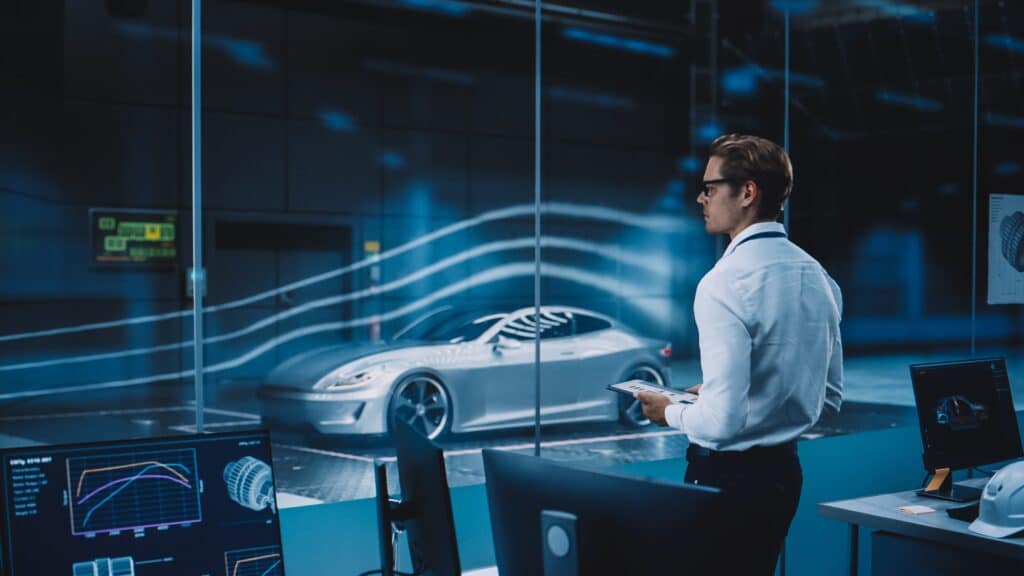
Revolutionizing Automotive Project Management with AI Automation
- Arunabh Satpathy
- June 8, 2023
- 1 minute
The rise of AI is quickly changing the automotive industry. From self-driving cars to project management automation, every step of the process is in flux. To keep up with this breathless pace, the requirements management process is also evolving by automating tasks like elicitation, writing, summarizing, etc.
AI-driven streamlining helps project managers, BAs, and QAs save time and improve efficiency in a fast-changing industry. It also increases stakeholder alignment with business goals.
This article covers AI’s impact in the car industry, its benefits, and a tool that helps with project management automation.
Global Automotive AI Market Forecast
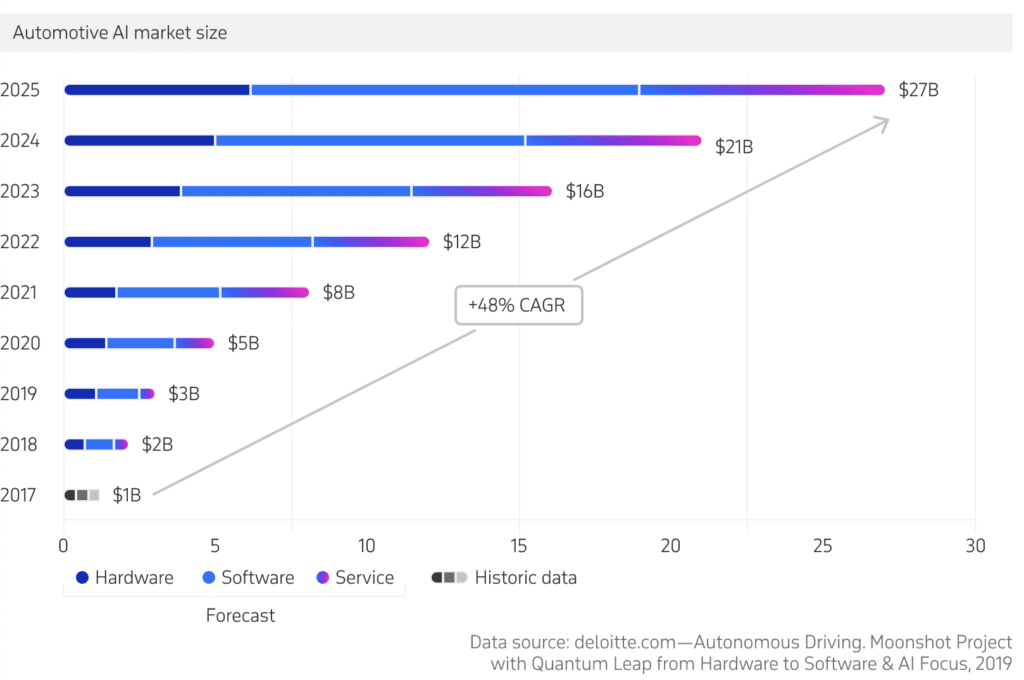
Source: Deloitte
See how it works:
Ready to streamline your requirements management today?
1. Streamlining Requirements Management with AI Automation
A key benefit of AI in any requirements management is that it reduces a significant amount of manual work. Ideally, it reduces some analysis work as well. By doing so, users can then focus on higher level strategic tasks, get manual tasks done quicker, and increase the overall quality of products your team produces. Here’s how:
A. Efficiency and Cost Reduction with Project Management Automation
- Design is a crucial phase in creating an automobile that affects every subsequent stage. But endless designs going back and forth can affect many factors downstream. AI project management tools can tackle common design bottlenecks like requirements generation, help with elicitation, gap identification, and clarifying project objectives that prevent endless redesigns.
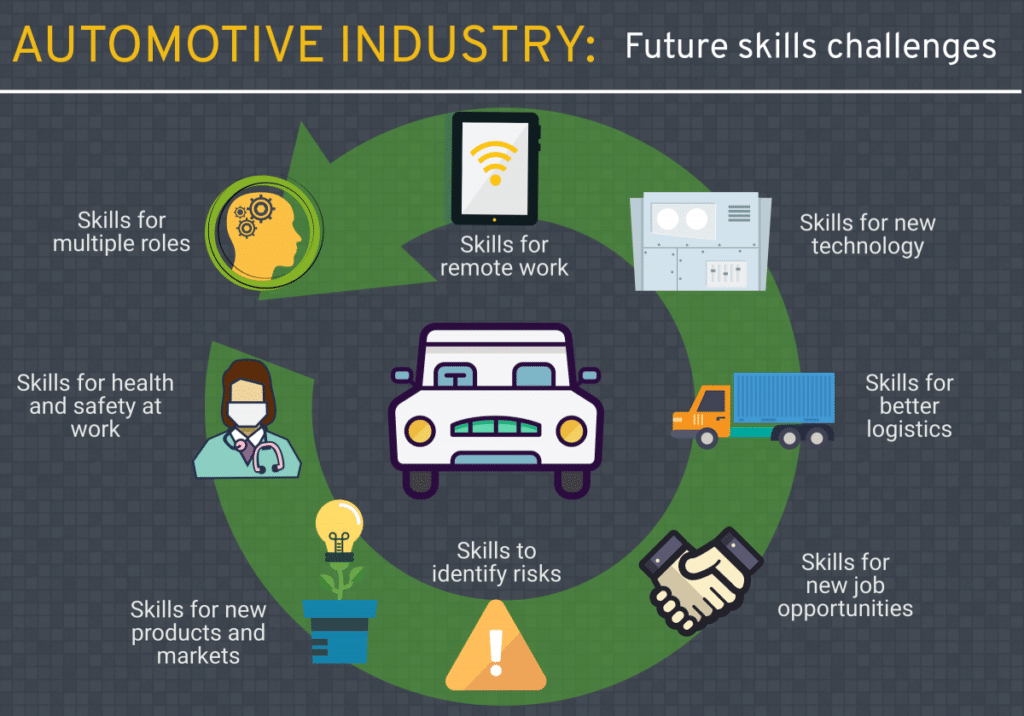
Source: Automotive industry at a crossroads | CEDEFOP (europa.eu)
- The industry is facing a massive skills shortage at every level of seniority. The automotive sector is slated to have a global talent shortfall of 2.3 million skilled workers by 2025 and 4.3 million by 2030. This shortage is particularly acute in the digital skills sector. An immediate solution to the skills and competency shortage is incorporating AI into the automotive industry. This can assist with requirements without requiring extensive training and experience.
B. Quality and Compliance
- Requirements generation can help identify aspects of the project that humans may have overlooked. Companies can utilize the saved time, money, and resources on projects requiring critical human oversight and judgement. For instance, an experienced project manager can document potential market risks for a new electric car based on their experience and previous industry knowledge. But this isn’t always the case. A new manager may use project management automation to help populate, categorize, and rank risks according to the context. For the next project, he can take his learnings and create even better requirements.
- Modern automotive products must pass dozens of compliance standards, including safety standards, manufacturing standards, environmental standards, and software standards. By capturing compliance-related requirements, an AI system can prevent expensive future redesigns and lawsuits.
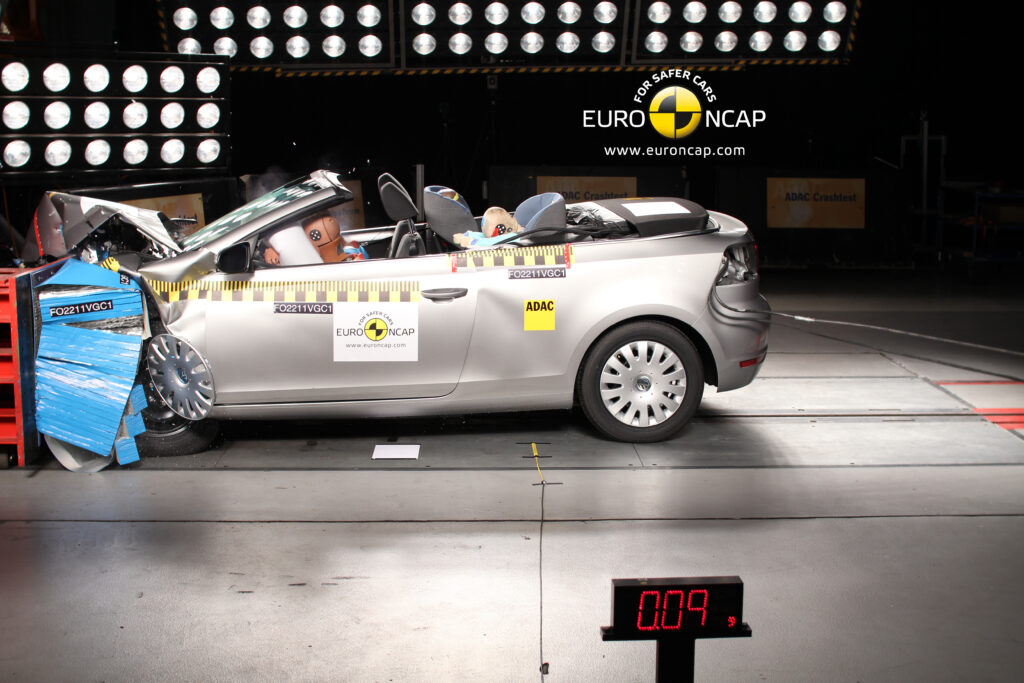
Source: Official VW Golf Cabriolet 2011 safety rating results (euroncap.com)
Related requirements management features can also help companies ensure that compliance requirements aren’t neglected across multiple iterations of product requirements. For instance, traceability defines the end-to-end relationship between requirements, making sure teams address compliance-related requirements. Version management helps them ensure that the project adheres to compliance requirements across multiple versions of requirements.
- If a car company properly identifies customer requirements, converts them into realistic user cases and user stories, and finally puts out well tested products, the customers end up satisfied. Better reviewed vehicles result in more revenue for car companies and easier access to better technology and funding to widen their competitive edge.
C. Innovation and Advanced Technologies
The automotive industry is one of the most innovative and competitive industries. In recent years, the increasing digitization of cars and slow but steady spread of self-driving or semi-self-driving features has necessitated a more Agile approach in automotive projects.
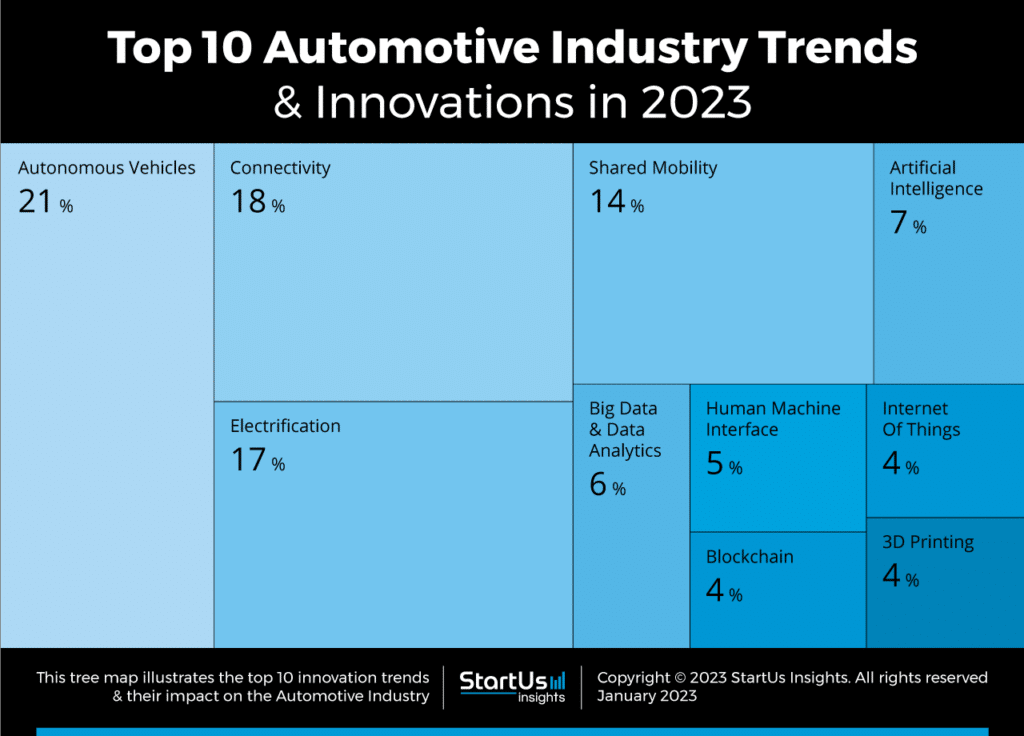
Source: Top 10 Automotive Industry Trends & Innovations 2023 | StartUs Insights (startus-insights.com)
On the design and product development end, AI assistants can give teams insights and recommendations based on data analysis, helping car companies stay competitive in a rapidly evolving market and manage risks.
AI applications and Machine Learning (ML) models can find unidentified risks called “zero-day” risks by including relevant requirements humans may have overlooked. For example, an AI system can include weatherproofing in fast-changing local weather conditions.
2. Introducing Copilot4DevOps
Copilot4DevOps is a revolutionary AI requirements management tool by Modern Requirements using OpenAI’s capabilities to enhance the productivity of PMs, developers, QAs, and BAs. By automating manual work and harnessing AI technology, Copilot4DevOps offers the following features:
- Work Item Data Analysis
- Requirements Rewriting
- Requirements Generation
- Use Case and User Story Conversion
- Gherkin Format Conversion
- Work Item Summarization
- Test Case Generation
- On-off switch to fit any company policy that includes or excludes AI tools.
All Modern Requirements products including Copilot4DevOps are rigorously compliant with relevant automotive compliance standards like ASPICE, ISO 26262:2018 (functional safety). ISO/SAE 21434 /SAE J3061, ISO/PAS 21448:2019, and IEC 60812.
3. Microsoft, OpenAI, and Security
Because Modern Requirements is built-into Azure DevOps’ powerful collaborative framework, it turns ADO into an all-purpose application lifecycle and requirements management solution integrated with the larger Microsoft ecosystem.
Our relationship with Microsoft means Copilot4DevOps gets Microsoft and OpenAI’s state-of-the-art security standards and strict adherence to privacy protocols. Users can trust that their data is protected and that they benefit from regular security updates provided by Microsoft and OpenAI.
Copilot4DevOps is designed to be updated to include the latest updates from GPT4 and to incorporate the latest advancements in AI technology. By staying at the forefront of AI innovation, we strive to offer our customers the safest and most advanced requirements management tool in the market. For more, read the OpenAI Privacy and Security updates.
4. The Future is Here
Integrating AI technology into cars, their manufacturing, and project management is revolutionizing the automotive industry. With AI tools in the automotive industry like Copilot4DevOps, PMs, BAs, and QAs will double their productivity and experience increasing levels of efficiency.
With its advanced features and seamless integration into Azure DevOps, Copilot4DevOps is a uniquely powerful tool for project management automation.


